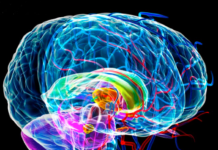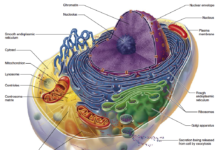By Hyla Cass, MD
I’m seeing increasing numbers of patients with sleep problems, ranging from difficulty in falling asleep, to being unable to sleep soundly through the night. Rather than waking up in the morning restored and rejuvenated, they are dragging themselves out of bed, facing another day feeling drained and exhausted. (1)
As you know, disrupted sleep can exert a severe toll on your emotional and physical health, interfering with mental abilities, productivity and performance – leaving you feeling stressed, cranky, depressed and drowsy. (2) Poor sleep patterns are linked to a growing list of serious health conditions, including obesity, heart disease, Type 2 diabetes, and even premature deaths in older adults.
Sleep Problems Begin in Middle Age
Sleep researchers at the University of Pittsburgh have recently shown that alterations in normal sleep patterns actually begin in middle age. (3) Studying 110 volunteers between 20 to 59 years of age, they discovered that the quality and duration of sleep changed dramatically between the mid-20s and the mid-50s, with subjects going to bed and waking up earlier. The subjects also slept less, woke up more often during the night, and experienced fewer stages of deep sleep. (4)
According to study author, Dr. Julie Carrier, “Middle age is a turning point for sleep. Some sleep patterns have already changed significantly by the time an average adult reaches age 30.” Dr. Carrier observed that these changes are most likely tied to gradual age-related changes in features of the biological clock. “We need to learn where the system breaks down. If we are able to find out what is causing the biological clock to change with age, we may be able to discover ways to overcome these changes and help get these people back on track.”
Restoring Natural Sleep Cycles
Given the scope of the problem it’s little wonder that the number of prescriptions for sleep aids has increased dramatically. According to data from IMS Health, 56,287,000 prescriptions were written last year for sleep medications like Ambien® and Lunesta®, a seven percent rise since 2007. My choice is to avoid prescribing fast-acting sleeping pills that tend to knock patients out and leave them with a hangover in the morning. I prefer, instead, to work with natural supplements combining nutrients that work together to gently promote a state of calm, initiate and support the natural process of falling asleep, and improve the overall quality of sleep to allow you to wake up feeling refreshed, energized and restored.
I most often recommend starting with two well-established supplements – the neurohormone, melatonin, that is commonly used to treat jet lag and aid shift workers (e.g. police officers and nurses), and the amino acid, 5-HTP, which promotes serotonin production. More details on these in my book, Natural Highs. I then add, if needed, a selection of traditional plant extracts, such as passionflower and valerian, that promote deep, restful sleep. Another favorite of mine is L-theanine, an amino acid derived from green tea that has been shown to aid in relaxing the mind and promoting a sense of calm.
Most recently I’ve been very impressed with a newly available version of a traditional Chinese herbal compound, Wulinshen, available in an aptly named formula, SleepCycle, along with the abovementioned natural sleep enhancers. Wulinshen is known to help to re-synchronize the body’s biological clock and sleep rhythms. It is rich in unique “deep-sleep” nutrients that help to relax the brain and promote a sense of calm to restore restful, recuperative sleep without next-day brain fog. It also reduces the time needed to fall to sleep, and, especially after seven to eight days of use, helps you to stay asleep longer. Wulinshen contains glutamic acid, gammaaminobutyric acid (GABA, a calming amino acid, as well as a relaxing neurotransmitter) and glutamate decarboxylase, all of which are natural tranquilizers.
Many of my patients come to me after trying all the typical prescription and natural sleep products. They report that SleepCycle works even better than expected: they now just go to bed, fall asleep, and wake up feeling refreshed. It seems to gradually and steadily restore an optimal state of balance, promoting deep, restorative, recuperative sleep cycles over time.
In summary, rather than introducing foreign chemicals that can cause a host of their own problems, my preference is always to go for the natural products that work with the body’s own chemistry.
References
1. 1.Stoller, MK. Economic effects of insomnia. Clin Ther. 1994;16:873-97.
2. Knipling R, Wang J. Revised estimates of the U.S. drowsy driver crash problem size based on general estimates system case reviews. Thirty-Ninth Annual Proceedings of the Association for the Advancement of Automotive Medicine; 1995:415-466.
3. E. J. W. Van Someren. “Circadian and sleep disturbances in the elderly.” Experimental Gerontology, Volume 35, Issues 9-10, December 2000, Pages 1229-1237.
4. “Deterioration Of Sleep During Middle Age Related To Changes In The Biological Clock.” ScienceDaily 25 June 1998.













